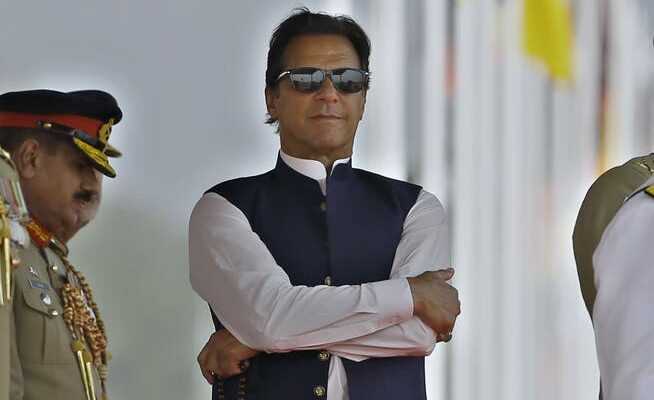Pakistan’s Prime Minister Imran Khan has lost the long-awaited vote of no confidence. Hours of debate followed. The vote was only made possible by a decisive resignation.
Imran Khan becomes the first prime minister in Pakistan’s history to be ousted by a vote of no confidence.
(dpa) Pakistan’s parliament has voted no confidence in Prime Minister Imran Khan. In a vote of no confidence, 174 out of 342 MPs voted against the former cricket star, as a parliamentary speaker announced in the night from Saturday to Sunday (local time) in the capital Islamabad. Supporters of the governing parties had previously left the hall. Khan is the first prime minister in Pakistan’s history to be ousted by a vote of no confidence.
Opposition leader Shehbaz Sharif thanked supporters for their fight. “Pakistan will rebuild this unity,” said Sharif.
The South Asian country had been waiting eagerly for the vote since the morning hours. The Supreme Court ordered the planned vote on Thursday after it was canceled almost a week ago due to alleged unconstitutionality. The subsequent dissolution of parliament by President Arif Alvi was also reversed.
The vote was initially delayed further and further by Parliament Speaker Asad Qaiser, who chaired the session. The heated debates between the government and the opposition were interrupted several times. Shortly before midnight, Qaiser, who belongs to Khan’s ruling party, surprisingly resigned and cleared the way.
Security forces cordon off government quarters
The government district in the capital, Islamabad, was shielded by hundreds of security forces after dark. For days, important access roads to the parliament building had been blocked with shipping containers out of fear of violent protests.
Foreign Minister Shah Mehmood Qureshi spoke of a foreign conspiracy on Saturday and called for unity in the country. Over the past few days, the prime minister has repeatedly accused the United States of wanting to overthrow Khan’s government. He provided no evidence of this. These could not be shown to the public because they are classified as classified, government officials said. The main argument in the debate was not wanting to hold the vote.
Opposition accuses Khan of poor governance and incompetence
The alliance of opposition politicians driving the no-confidence vote accuses Khan of poor governance and incompetence on economic issues. Most recently, the prices for food, petrol or gas in the South Asian nuclear power with around 220 million inhabitants had risen massively.
The prime minister was thwarted by the corona pandemic, which brought the country a massive economic crisis. Instead of leading the country out of its misery, Khan recently had to meet the strict requirements of the International Monetary Fund (IMF) with new taxes and tax increases in order to get funds again. Khan only had a slim majority in parliament.
The nuclear power of more than 220 million people had been ruled for more than half of its existence by the military, which had seized power four times. Some observers expressed fears that a prolonged standoff could force it to intervene. Others thought this unlikely. On the contrary, the army would prefer civilians to take the blame for the current economic misery, wrote Pakistan expert Michael Kugelman in Foreign Policy.
